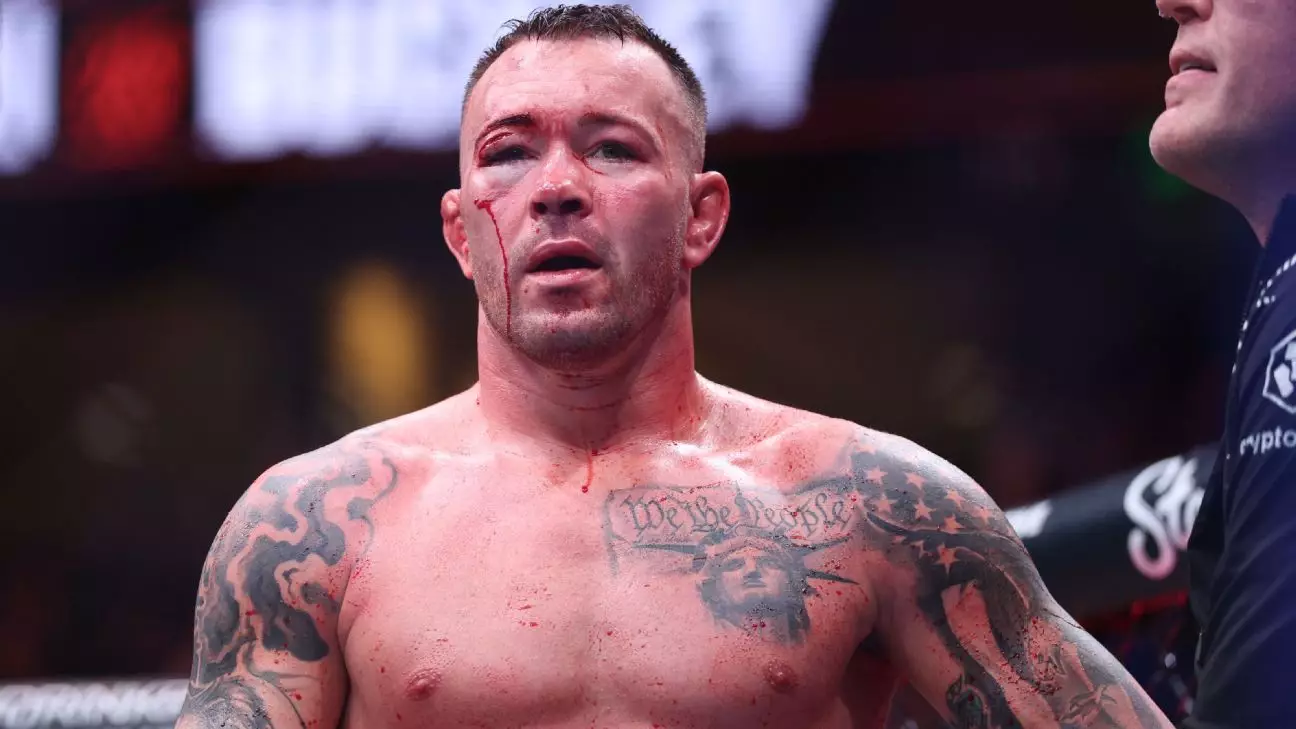Colby Covington’s recent bout against Joaquin Buckley in Tampa was surrounded by controversy, sparking debates about fight stoppages and the role of medical professionals in the UFC. The stoppage in the third round due to excessive bleeding from a cut above Covington’s right eye left the fighter feeling shortchanged. Covington voiced his frustrations on his YouTube channel, arguing that he was just getting into his rhythm and believed the match was evenly poised at 1-1. With momentum appearing to shift in his favor, he lamented that the fight ended just as he was about to ramp up his performance.
The emotional aftermath of this loss reveals a deeper sentiment within Covington; he felt robbed of the chance to prove his mettle and to turn the tides in what he perceived as an evolving battle. Many fighters often face the daunting reality of performance uncertainty, where situational elements can abruptly kill a fighter’s chance for redemption mid-fight.
The Role of Medical Personnel in Combat Sports
In the eye of the storm was UFC legend Chael Sonnen, who played a significant role in Covington’s corner during the fight. Sonnen later revealed on his YouTube channel his internal conflict as a corner man, indicating that he was inches away from throwing in the towel himself. The clash between the coach’s instinct to protect his fighter and his desire for competitive integrity encapsulates a significant dilemma that corners face in combat sports. Sonnen detailed the multiple times the ringside doctor assessed Covington’s injury, ultimately deeming that the fighter could no longer compete due to blood entering his eye.
This leads us to a critical reflection on medical intervention in sports. While fans may voice claims of toughness, and fighters display remarkable resilience, safety remains paramount. In cases like Covington’s, where an injury profoundly affects vision, safety must outweigh competitive fervor. The potential for irreversible harm must dictate the course of action, even if that means stopping a fight that could become pivotal for a fighter’s career.
The Aftermath and Future Outlook
Despite the contentious circumstances surrounding the stoppage, Covington maintains a commendable perspective regarding the situation. He recognized UFC president Dana White’s comment that the fight might have continued in Las Vegas, an acknowledgment of variances in medical standards across different jurisdictions. This perspective reflects an understanding of the complexities involved in professional fighting, where the interpretation of a cut can vary between regions.
Covington’s forward-looking attitude suggests a determination to bounce back stronger in future bouts. As fight fans, we can appreciate the psychological toughness it takes to manage disappointment while preparing for a comeback. Buckley’s success in improving his MMA record to 21-6 serves as a reminder that opportunities and challenges are ever-present in the world of martial arts, paving the way for new narratives and rivalries to unfold.
Ultimately, the discussion around fight stoppages transcends mere outcome; it beckons a deeper understanding of the ethical responsibilities that accompany professional combat. The integrity of the sport hinges on ensuring that fighters remain safe while maintaining the competitive spirit that drives them. As Covington prepares for future endeavors, one can only hope that the lessons learned from this bout encourage continued dialogue around athlete safety and the essence of combat sports.


Leave a Reply